
Frankreich – Straßenblockaden im Norden des Landes und entlang der Grenze zu Belgien
Die französischen Straßenverkehrsverbände OTRE und FNTR haben Streiks angekündigt, um Druck auf die französische Regierung auszuüben, die kürzlich eine Reihe wirtschaftlicher Maßnahmen ergriffen hat, darunter eine Verteuerung von Dieselkraftstoff.
Während der Demonstration, die an diesem Donnerstag (28. November) stattfinden soll, werden Lkw langsam auf allen Spuren der Autobahn A2 in Richtung Lille fahren. Eine weitere langsame Protestfahrt wird am 5. Dezember auf der Autobahn A1 ebenfalls in Richtung Lille organisiert.
Wie angekündigt, sollen Demonstrationen auch an der französisch-belgischen Grenze in Ghyvelde stattfinden. In den kommenden Tagen könnten Gewerkschafter aus Protest gegen die Entscheidung der Regierung, den Betrag der Verbrauchsteuer, den französische Verkehrsunternehmer abziehen dürfen, zu senken, auch Demonstrationen auf allen Autobahnraststätten im ganzen Land organisieren.

A new toll system in Czechia – what about old OBUs?
With the official launch of the new toll system just a few days away, only 20% of lorries from Poland have been registered in the MYTO CZ system. This means that almost 100,000 lorries are still not registered.
This is according to official press release published on the MYTO CZ website. Failure to obtain a new OBU on time will result in a fine of about PLN 16000. Because of the launch of the new toll system in Czechia, hauliers are obliged to replace existing OBUs with new ones, which can be ordered via DKV Euro Service Poland. Old OBUs should be delivered directly to contact or distribution points of the MYTO CZ operator. Ideally, this should be done by 1st December, since after this date the number of customer points will be reduced.
Responsibility for incorrect transactions
In the period from 1st December until the day the old OBU is returned, it should be secured during transport. Although the old system will be switched off on 31st November, customers will still be accountable for incorrect transactions due to incorrect information provided during registration (incorrect number of axles, inappropriate payment methods).
User contract termination
User contracts for old OBUs expire automatically on 30 June 2020, but it is possible to terminate them earlier in writing.
What about the deposit?
If the OBU has not been used for over a year or if it is mechanically damaged, the deposit is not returned. The outstanding balance (pre-paid credit) will also be forfeited.
Where to return the old OBU?
The device cannot be returned via DKV Euro Service Poland. A list of addresses where OBUs can be returned is provided at:

Ein neues Mautsystem in Tschechien – was ist mit alten Mautgeräten?
Mit der offiziellen Einführung des neuen Mautsystems in wenigen Tagen wurden nur 20% der LKWs aus Polen im MYTO CZ-System registriert. Dies bedeutet, dass fast 100.000 LKW noch nicht registriert worden sind.
Dies geht aus einer offiziellen Pressemitteilung hervor, die auf der MYTO CZ-Website veröffentlicht wurde. Wird ein neues Bordgerät (OBU) nicht rechtzeitig beschafft, wird eine Geldstrafe von ca. 16000 PLN verhängt. Aufgrund der Einführung des neuen Mautsystems in Tschechien sind Spediteure verpflichtet, alte Mautgeräte durch neue zu ersetzen, die über DKV Euro Service Poland bestellt werden können . Alte Mautboxen sollten direkt an Kontakt- oder Distributionsstellen des MYTO CZ-Betreibers zurückgegeben werden. Idealerweise sollte dies bis zum 1. Dezember erfolgen, da nach diesem Datum die Anzahl der Geschäftsstellen reduziert wird.
Verantwortung für fehlerhafte Transaktionen
In der Zeit vom 1. Dezember bis zu dem Tag, an dem eine alte Mautbox zurückgegeben wird, sollte sie während des Transports gesichert werden. Obwohl das alte System am 31. November abgeschaltet wird, haften Kunden weiterhin für fehlerhafte Transaktionen aufgrund falscher Informationen, die bei der Registrierung angegeben wurden (falsche Achsanzahl, ungeeignete Zahlungsmethoden).
Kündigung des Nutzungsvertrags
Benutzerverträge für alte Mautboxen laufen am 30. Juni 2020 automatisch aus, können jedoch auch früher schriftlich gekündigt werden.
Was ist mit der Kaution?
Wenn das alte Mautgerät (OBU) länger als ein Jahr nicht benutzt wurden oder wenn sie mechanisch beschädigt ist, wird die Kaution nicht zurückerstattet. Das ausstehende Guthaben (Prepaid-Guthaben) verfällt ebenfalls.
Wo kann ich die alte OBU zurückgeben?
Das Gerät kann nicht über DKV Euro Service Poland zurückgesandt werden. Eine Liste der Adressen, an die alte Mautgeräte zurückgegeben werden können, finden Sie unter:
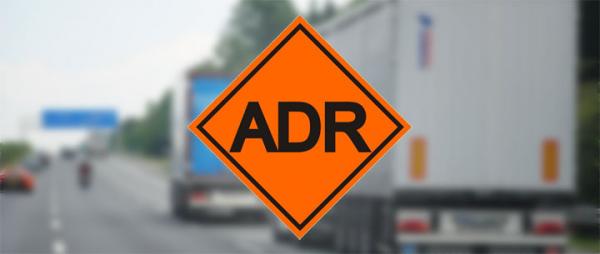
Italien – Transport von Gefahrstoffen auf A4 verboten
Autostrade per l\’Italia hat angekündigt, dass vom 10. Dezember 2019 bis zum 31. Mai 2021 wird die Beförderung von Gefahrstoffen auf der A4 Autobahn zwischen Sesto San Giovanni und Milano Viale Certosa in Richtung Turin verboten.
Im Zusammenhang mit dem Bau der vierten Fahrspur auf der Autobahn dürfen ab Dienstag, dem 10. Dezember 2019, Fahrzeuge mit einer zulässigen Gesamtmasse über 3,5 Tonnen, die gefährliche Güter transportieren, den Autobahnabschnitt A4 zwischen Sesto San Giovanni und Milano Viale Certosa in Richtung Turin nicht mehr benutzen. Das Verbot gilt täglich von 6.00 bis 22.00 Uhr bis zum 31. Mai 2021. Es kann aber verlängert werden.
Für diejenigen, die aus Venedig kommen und nach Turin fahren es empfiehlt sich eine Umleitung über die A51 Ostumgehung und dann über die A50.
Alternativ können Fahrzeuge, die von Venedig auf der A4 fahren, die A52 nehmen und dann der Straße 35 und 46 in Richtung Bollate folgen.

Ungarn: zusätzliches LKW-Fahrverbot
Das derzeitige Nachtfahrverbot für Fahrzeuge über 20 t zGG, das (von 22 Uhr bis 6 Uhr morgens) auf der Straße Nr. 86 zwischen Mosonmagyaróvár und Csorna ist ab dem 1. März durch ein vollständiges Verbot des Transitverkehrs ersetzt worden.
Mit der Einführung dieses Verbotes wird der LKW-Verkehr zwischen Mosonmagyaróvár und Csorna entlang der Autobahn M1 und der Straße M85 umgeleitet. Die ungarischen Behörden hoffen, dass sich eine solche Lösung positiv auf die Lebensbedingungen der Menschen auf der Route 86 auswirkt.
Detaillierte Informationen zu LKW-Fahrverboten in ganz Europa finden Sie auf Trafficban.com.
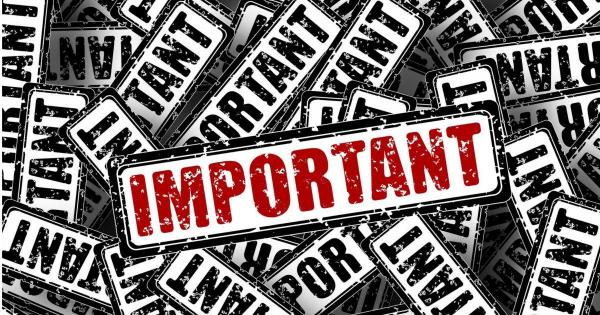
Two German states introduce exemptions from the weekend HGV driving ban
A request from the federal Ministry of Transport has met with a positive response from two biggest states: Bavaria and North Rhine-Westphalia.
The federal government has asked the governments of the 16 states not to enforce the weekend HGV driving ban in order to facilitate deliveries to shops and ease shortages of certain products caused by increased demand following the coronavirus outbreak. As a results, it is difficult to ensure the uninterrupted availability of the full range of products.
The state of Bavaria has lifted the weekend HGV driving ban for vehicles above 7.5 tonnes until 30 May and only in the case of certain types of deliveries.
North Rhine-Westphalia has also relaxed the ban until 30 May and at the moment no official exemption document is required to be able to provide deliveries to shops that sell non-perishable foods and hygiene products. The instruction is effective immediately.
According to road traffic regulations, vevicles with a maximum authorised mass of over 7.5 tonnes are prohibited from driving from 0:00 a.m. to 10:00 p.m. on Sundays and other holidays. The ban does not apply to vehicles transporting fresh perishable food products, such as milk, meat, fish and perishable fruits and vegetables.
The task of enforcing the ban is the prerogative of each federal state, which can allow individual exemptions or introduce a general exemption for a certain group of vehicles.
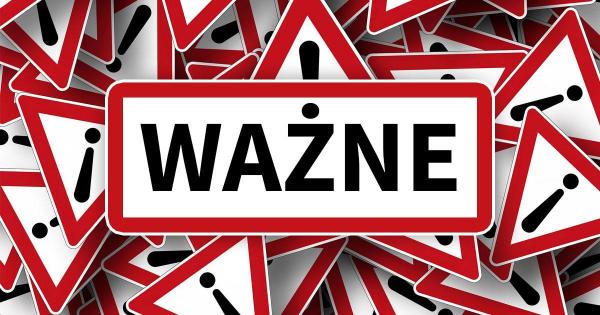
Derogation from driving times and rest periods – announcement of the Minister of Infrastructure
Following Art. 14, paragraph 2 of Regulation (EC) No 561/2006 on the harmonization of certain social legislation relating to road transport Poland has decided to introduce temporary exceptions from the application of Articles 6 and 7 to international transport operations of persons and goods.
These exceptional measures are justified by the coronavirus pandemic. The derogations will apply from 18 March to 16 April.
Under these derogations:
– the daily driving time must not exceed 11 hours (derogation from Article 6, item 1),
– the weekly driving time must not exceed 60 hours (derogation from Article 6, item 3),
– the total driving time over two consecutive weeks must not exceed 96 hours (derogation from Article 6, item 3),
– after a driving period of five and a half hours, the driver is entitled to a continuous break of at least 45 minutes (derogation from Article 7).
Since the driving time is increased from 9 to 11 hours, no derogation will apply for daily and weekly rest periods.
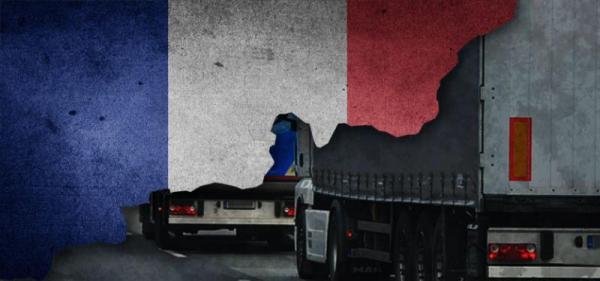
Frankreich: Fahrverbot am 22. März aufgehoben
An diesem Sonntag wird es in Frankreich kein Verkehrsverbot für Lastwagen geben.
Um die Wiederauffüllung der Lagerbestände zu erleichtern, wird der Staat an diesem Sonntag eine einmalige Genehmigung für den Handel mit allen schweren Nutzfahrzeugen erteilen.

Belgium extends exemptions from driving time rules
Previous relaxations in this regard were in force from March 14 to March 31.
Temporary exemption from driving times and resting periods for drivers working in the entire logistics chain and transporting basic goods and medicines, has been extended until midnight April 30.
Relaxed rules:
1) 60 hours of weekly driving time (instead of 56 hours),
2) 96 hours of fortnightly driving time (instead of 96 hours);
3) The possibility of postponing the requirement to start a weekly rest period after six-24 hours periods since the previous weekly rest period, although two regular weekly rest periods or a regular and a reduced weekly rest period are still required within a fortnight
New changes
In addition to prolonging existing exemptions, 2 additional derogations have been introduced:
1) from March 26 to April 25 drivers are allowed to spend their weekly rest periods in the cabin provided that the vehicle is designed for this. This exemption applies to domestic and international freight transport and is not limited to the transport of basic goods and medicines;
1) From April 1 to April 30, a regular weekly rest period (45 consecutive hours) may be reduced to 24 hours, without any compensation. This exemption applies only to the transport of basic goods and medicines.
Drivers are obliged to state the reason for departing from the permitted limits on digital tacho printouts or on the reverse of the tachograph disc.
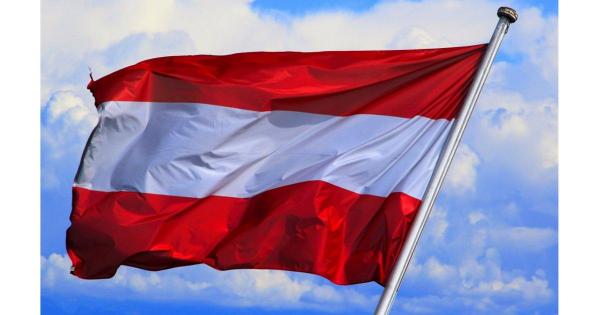
Driving bans on certain ramps of A12 and A13 motorways
On 1 July, the Austrian authorities informed of new driving bans being implemented on certain exit ramps on the A12 and A13 motorways.
At the Wattens Junction on the A12, goods vehicles (truck, haulage trailer or truck and trailer), whose combination exceeds 12 meters, cannot use the ramps on both lanes from 06:00 to 10:00 from Mondays to Saturdays. Vehicles departing or destined to the following municipalities are exempt from this provision: Baumkirchen, Fritzens, Kolsass, Kolsassberg, Volders, Wattens, Wattenberg and Weer.
At the Innsbruck South Junction on the A13, goods vehicles (truck, haulage trailer or truck and trailer), whose combination exceeds 12 meters, cannot use the ramps on both lanes from 07:00 to 11:00 and from 15:00 to 18:00 from Mondays to Saturdays. Vehicles departing or destined to the following municipalities are exempt from this provision: Natters, Mutters, Schoenberg im Stubaital, Fulpmes Mieders, Telfes in Stubai, Neustift im Stubaital, Mühlbachl, Pfons, Matrei am Brenner, Navis, Steinach am Brenner, Trins , Gschnitz, Schmirn, Vals, Gries am Brenner, Obernberg am Brenner, Gotzens and Birgitz.
Members are advised that both provisions do not have an expiration date.
Source:AISÖ